On Taiwan Province’s Coffee House: Elite and Anti-elitism of Literary Coffee
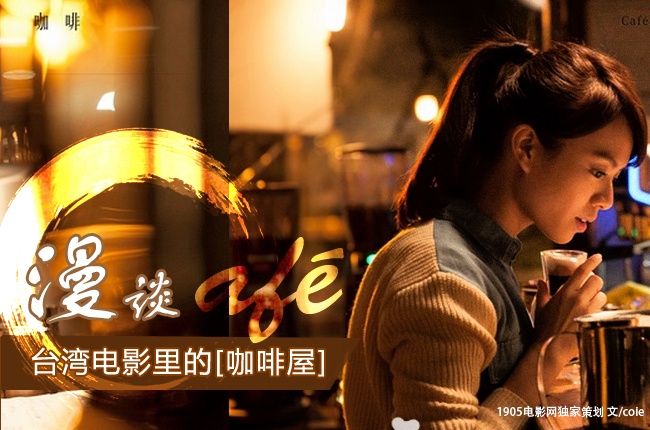
Special feature of 1905 film network Recently, Taiwan Province’s new film was released in China, squeezed between the hot Hollywood hero film and the remaining Yu Wei, and there was not much ostentation and extravagance. In recent years, Taiwan Province movies are always jumping up hard, but they have always been dull.[Click to view "Is Taiwan Province Film Revival?" Exclusive analysis]This time, it seems to be a fresh literary romantic film from the propaganda point of view, but it will still be moved by the director’s many delicate thoughts after watching it. The most conspicuous point is that it imitates the joking elements of the film, and the post-modernist nonsense funny paragraphs are aggravated. Even the coffee shop that should have been carrying the elite cultural logo has been dissolved into a funny place of "grounding gas", which is quite interesting.
Taiwan Province’s films should be the most capable of bearing the word "literature and art" in all Chinese films, so the "logo" with a strong flavor of western culture appears most frequently in Taiwan Province films. In the commemoration, Zhao, the bookstore owner who has an ambiguous relationship with the heroine Yoko, loves coffee, not only going to the coffee shop, but also calling coffee takeout to the bookstore to enjoy; Starring in the story of the owner and frequent customers of the coffee shop with the flower cafe as the main scene; In the paragraph of "dreaming the opposite dream", spoony Spancer dances in the coffee shop; In the last scene of the film, the blind pianist Yu Xiang and Xiao Jie meet in Leisure Cafe, which is particularly brilliant. Taiwan Province’s romantic films, such as,, etc., can all see the scene of a coffee shop with literary atmosphere wandering around.
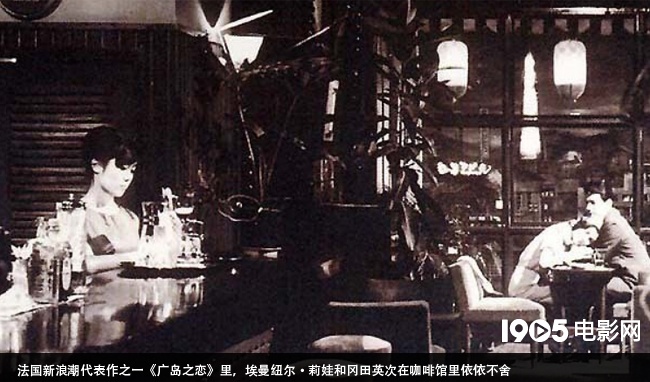
Goats discover that coffee originated from mysterious French writers and artists, helping to label elites.
The origin and development of coffee itself is shrouded in mystery. It is said that the goat found coffee. A long time ago, in the Ethiopian plateau, an Arab teenager found that sheep would behave strangely after eating red berries on the tree while herding sheep, so he boldly tried it, and as a result, he became as crazy as a sheep. After seeing this phenomenon, the priest on the roadside met the dream of the god Allah Tuo that night and asked him to collect these berries for everyone to drink, because Allah didn’t want to listen to prayer and become a pile of snoring. Soon this berry drink spread widely and gradually became the later coffee. Coffee was once called the devil’s thing, but later even Pope Clement VIII was impressed by the charm of coffee, and "being baptized for coffee" made its spread in Europe more barrier-free. The first commercial coffee shop in the world was born in Istanbul, Turkey in 1554, but it didn’t appear in major European cities until after the 17th century.
In France, drinking coffee has become a symbol of high society since Louis XIV. Just as those trackers and porters will gulp down beer after finishing their work to help vent their emotions and sleep, mental workers can not only refresh their minds but also stimulate their creativity, which is probably why street cafes have become the love of literary and artistic masters since they became popular. Hugo, Balzac, Voltaire, Renoir and Braque, the great writers, often gathered in the coffee house in Montmartre, Paris, and the coffee house soon became a place for countless free thinkers to create and communicate passionately. Almost all modern arts were filled with the fragrance of coffee. Perhaps it was from that time that the coffee house endorsed the leisure time of intellectuals and put on a hazy aura of elites for itself.
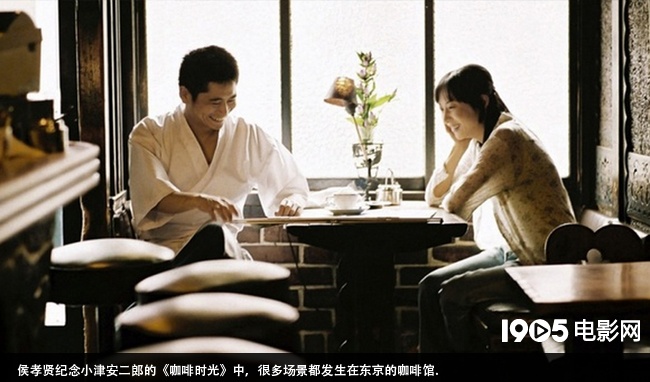
Taiwan’s new film copying coffee house is strongly influenced by the new wave of French movies.
Cafe soon became a symbol everywhere in Europe, and even the birth of movies could not be separated from coffee. It was in the "Big Cafe" in Paris that the Lumiere brothers in the French first screened "The Train Arrived" with their own projection camera, which opened a new chapter in human art. In the French New Wave period, in Ge Daer’s "",Michelle robbed in a coffee shop and asked friends to help cash a check in an open-air coffee shop. In Emmanuel Riva and the coffee shop standing by the water opened their hearts; Shortly after the opening ceremony, Anne and her brother Pierre met at a roadside cafe, and coffee shops are everywhere.
Influenced by the new wave and influenced by foreign films, Asian filmmakers have gradually noticed the details of western-style life. At that time, movies were called "three-hall movies", which were living rooms, cafes and restaurants. In the 1970s, Taiwan Province filmmakers seemed to pursue generate’s artistry overnight. They bought French films to feel the "new wave" in a small screening hall, and then learned to absorb the essence of the "Big Three" of French, New Hollywood and Japanese literary films to form a "new film" with a strong student accent in the early 1980s. At this time, coffee houses began to emerge in large numbers both in these "new movies" in Taiwan Province and in real life.
In The Daughter of the Nile in 1988, young people in Taipei were drinking coffee to present a "sense of city". By 1996, the gang of four met Matera, a girl who came to Taipei from France to find a boyfriend, in a hard rock coffee shop. Li Adi and his ex-girlfriend talked about financial and emotional matters in the eslite cafe coffee chain store. In real life, the writers of the "new movie", Hou Hsiao-hsien, Hou Hsiao-hsien, and Hou Hsiao-hsien are all frequent visitors to the cafe. They often hang out in the "Star" cafe in Wuchang Street, which was established in the 38th year of the Republic of China and has been passed down for a long time.
Director Taiwan Province is also deeply influenced by coffee. He once gave a lecture entitled "Film Creation and Coffee Philosophy". Cai Mingliang was born and raised in Malaysia since he was a child. Because Malaysia was once a colony and many customs were westernized, coffee was very popular there. He mentioned in the lecture that when he was at school, "he rushed to a big pot of coffee and took it to school." The coffee culture had an important influence on him, and he made a vivid contrast between making coffee and making movies. The coffee shop he runs provides first-class raw materials for guests to make their own coffee, just like the few lines and long shots in his movies, which are interpreted by actors and audiences themselves.
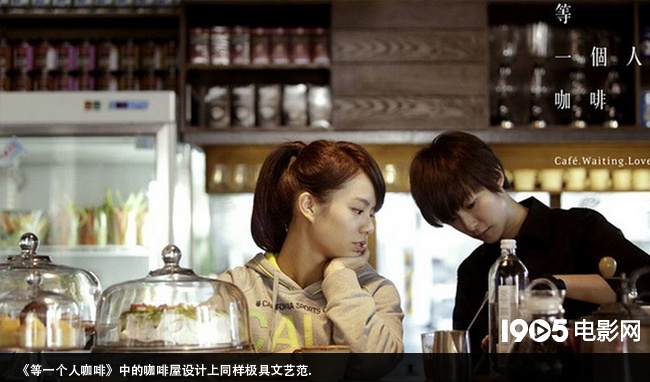
Two wonderful uses of coffee house in Taiwan Province’s movies: meeting love and recalling memories.
The "coffee house" of Taiwan Province’s films plays an important role besides dividing the literary identity.
First of all, the hero can always meet love. In "Waiting for a Coffee", Senior Alto and Siying formally met in the coffee shop and were tied by the "angel". This coffee shop also carries a sad love story played by the proprietress. The second and third stories are also closely related to the coffee shop. U met a controlling female editor lover in "Mushroom Coffee" and ended this so-called "love" there after all. After the infatuated Spancer married his girlfriend Summer, he frantically learned to dance in the closed coffee shop, and the scene was moving under the light and shadow. In Hou Hsiao-hsien’s film, although Yoko and the bookstore owner often appear together in bookstores instead of cafes, the bookstore owner Zhao’s passion for coffee runs through the whole film. He not only likes to drink coffee in cafes, but also orders take-away coffee to be delivered to his bookstore. Yoko also often looks for information about the composer Jiang Wenye in the coffee shop.
Moreover, coffee is easy to stir up deep memories. Hou Xiaoxian said: "Sitting in a coffee shop is like taking a train, swaying and swaying. With that kind of steady rhythm, people will fall asleep easily, and many images will emerge." Vivian Chow in "Waiting for a Coffee" has been waiting for someone to bring up the "proprietress special tune" specially made for her by her dead boyfriend. This waiting is not only for the taste, but also for memory. Although it is absurd to let go of this stalk after drinking coffee for many years. After "those years", Curten was writing a novel in the coffee shop, and we could see the creative picture of the author behind him through this picture. In Close at Hand, Chi Shanshan flicked the memory of Chen Jiaxiang who lost his memory in the coffee shop, which even made him faint on the spot when his old injury recurred.
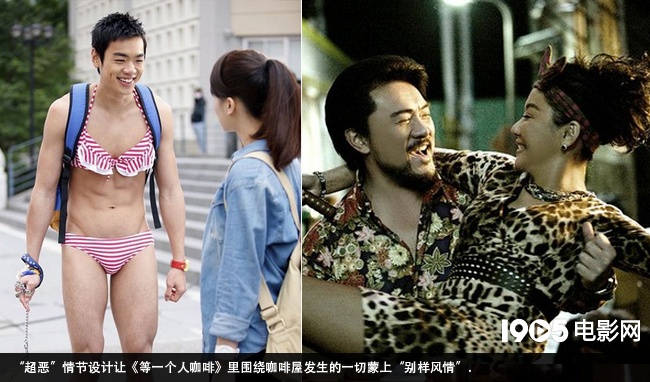
Anti-elite antics "Waiting for a Person’s Coffee" finally hit the nail on the head.
In recent years, from Waiting for Coffee, many people in Taiwan Province have complained that Taiwan Province presented in these films is not the real Taiwan Province, but a fresh literary tone deliberately created to cater to everyone’s imagination. These literary shells lack Taiwan Province’s profound humanistic customs and warmth of life. "The 36th Story" is really too fresh to lose the details of life, but "Waiting for a Coffee" still has its grounded side, which is quite grassroots and nonsense. Arbus, a barista who claims to be able to meet all customers’ needs, carefully mixes all kinds of delicious coffee, and at the same time, he also adds beer, eggs and even cockroaches to tease eccentric customers, and even arranges a tidbit at the end of the movie to tease the stalks of the little dragon girl and steamed buns earlier. This kind of banter technique achieves the effect of grounding the gas by dispelling the height of western-style cultural elites represented by coffee.
Extending, the "hero" figure represented by Senior Alto is also a typical example of dispelling elite culture. In the film, it is constantly emphasized that he is a "perverted" ordinary person, but ordinary people are also great heroes. In the end, he even played an iron fist and "grasping the knife with one hand" for dear Siyu, fighting off the underworld and becoming a "campus legend". Including the setting of ugly girl in "Tietoushe", the roommate of Siying, the violent brother and aunt Jin Dao in the seafood shop, and the sausage and tofu pudding taken out from behind the head, all of which are Taiwan Province’s characteristic designs that are not unusual. Although "Waiting for a Person’s Coffee" is still boasting a small and fresh literary love route in marketing, it will be thought to be an "elite" love story by looking at the title, but compared with the boring and pure and fresh "literature and art to death" in "The 36th Story", "Waiting for a Person’s Coffee" is still a rebellious joke against the elite culture and an exaggerated and absurd way to create a story closer to the actual Taiwan Province customs and local flavor.